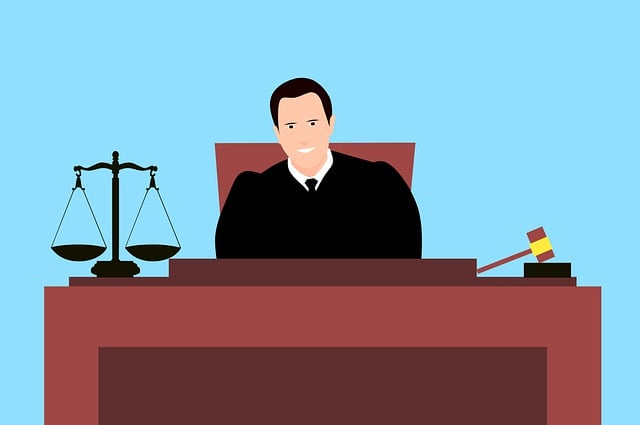Consumer Protection Laws (CPL) are designed to safeguard individuals from deceptive practices, including false advertising, identity theft, and unfair business tactics. To file a successful lawsuit under CPL, consumers must understand misrepresentation, gather evidence (documents, receipts), choose the right legal venue, and consult an attorney specializing in consumer protection law. The process involves preparing legal documents, assessing case liability, and guiding clients through filing complaints with authorities. Effective strategies require meticulous evidence collection, strategic legal arguments, and demonstrating significant harm from deceptive practices to achieve favorable outcomes like substantial settlements or verdicts.
In today’s competitive market, understanding consumer protection laws is paramount. These legal frameworks are designed to safeguard individuals from unfair business practices, ensuring transparency and integrity in transactions. This article guides you through the intricacies of consumer protection lawsuits, offering insights on how to file a claim effectively. Learn about the scope of these laws, identifying misrepresentation as a grounds for suit, understanding the steps involved, and building a strong case with robust evidence and strategic legal approaches.
- Understanding Consumer Protection Laws and Their Scope
- Identifying Grounds for a Lawsuit: What Constitutes Misrepresentation?
- The Steps Involved in Filing a Consumer Protection Lawsuit
- Building a Strong Case: Evidence and Legal Strategies
Understanding Consumer Protection Laws and Their Scope

Consumer Protection Laws (CPL) are a crucial set of regulations designed to safeguard individuals from deceptive, unfair, or fraudulent practices in their daily transactions. These laws cover a wide range of activities, including white-collar and economic crimes, ensuring consumers’ rights and interests are protected. Understanding CPL is essential for anyone considering how to file a lawsuit under these provisions.
By learning the scope of CPL, individuals can better navigate their legal options when facing issues like false advertising, identity theft, or unfair business practices. Across the country, many cases involving consumer protection have led to achieving extraordinary results for victims, with settlements and verdicts that compensate them for their losses and send a strong message to businesses engaging in such activities. When deciding how to file a Consumer Protection Lawsuit, it’s important to consult legal experts who can guide you through the process and help ensure your rights are fully protected.
Identifying Grounds for a Lawsuit: What Constitutes Misrepresentation?

Identifying Grounds for a Lawsuit: What Constitutes Misrepresentation?
When considering how to file a consumer protection lawsuit, understanding the grounds for such an action is crucial. Misrepresentation plays a significant role in many legal cases under this category. This can include false or misleading information given by a respective business about their products or services. Consumers have the right to expect accurate and honest marketing claims from companies, and any deviation from this standard may give rise to legal action.
To establish a successful lawsuit, it’s essential to demonstrate that there was an untrue statement or omission made with the intention to mislead, and that this resulted in harm or loss for the consumer. The respective business must have had knowledge of the misrepresentation or acted despite reasonable doubt about its accuracy. Consumer protection laws cover a wide range, including issues related to white collar defense, and understanding these legal principles is key when navigating all stages of the investigative and enforcement process.
The Steps Involved in Filing a Consumer Protection Lawsuit

When considering how to file a consumer protection lawsuit, it’s essential to understand the structured process involved. The initial step is to identify a violation of consumer rights, such as false advertising, unfair pricing, or product liability issues. Consumers should gather evidence, including relevant documents, receipts, and any communications with the respective business. This stage requires careful documentation to support their claims.
Next, individuals must select the appropriate legal venue and consult with an attorney specializing in consumer protection law or white-collar defense. The lawyer will assess the case, advise on potential outcomes, and guide the client through filing a complaint with the relevant authority. This process involves meticulous preparation of legal documents, ensuring compliance with specific regulations, and presenting a strong argument to protect the rights of both corporate and individual clients.
Building a Strong Case: Evidence and Legal Strategies

Building a strong case in criminal law requires meticulous attention to evidence and strategic legal arguments. When navigating complex matters like white-collar defense or consumer protection lawsuits, understanding how to present your case is key. A robust strategy involves gathering compelling evidence, conducting thorough investigations, and employing creative legal tactics.
To file a successful consumer protection lawsuit, for instance, plaintiffs must demonstrate significant harm caused by deceptive practices. This may include documenting financial losses, collecting communication records, and securing expert testimony. Legal strategies should focus on interpreting relevant laws, establishing liability, and aiming for a complete dismissal of all charges. Achieving extraordinary results often hinges on these comprehensive approaches.
Understanding consumer protection laws is essential for navigating Criminal Law Cases related to misrepresentations in various transactions. By knowing the scope of these laws, identifying grounds for a lawsuit through understanding misrepresentation, and following the steps involved in filing a consumer protection lawsuit, individuals can build strong cases. Utilizing robust evidence and effective legal strategies is crucial to ensure a successful outcome, thereby empowering folks to protect their rights and prevent deceptive practices. To learn more about How to File a Consumer Protection Lawsuit, delve into these key aspects for a comprehensive guide.






